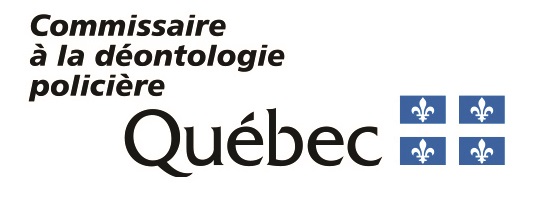Police powers and duties
Sources of Police Powers
Sources of Police Powers
The purpose of this page is to present in a general and simplified manner the law in force in Quebec concerning citizens' rights as well as police powers and duties. This is not legal advice or advice. To find out the rules specific to your situation, consult a lawyer.
Criminal Code
The Criminal Code is a federal law that applies uniformly across Canada. That said, in Quebec, as in any other province, police officers must respect this law in the performance of their duties. Indeed, the Criminal Code defines the behaviors that constitute offenses and the sentences that can be imposed by the court following a finding of guilt, but also provides for the procedure to be followed by the various players in the justice system.
Under the Criminal Code, all police officers therefore have certain obligations to respect when carrying out their work, failing which their conduct may be deemed contrary to the law or to their Code of Ethics.
In particular, any police officer :
- who uses force in the performance of their duties must rely on reasonable grounds to do so and may not use excessive force;
- who arrests a person without a warrant must believe that it is necessary, in particular to identify them, to collect or preserve evidence, to prevent the offense from being repeated or because they believe that if they do not arrest the person, the person will fail to appear in court (otherwise the police officer must obtain a warrant to arrest the person);
- who arrests a person, with or without a warrant, and who brings them to the police station must have them appear before a judge within 24 hours of their arrest, with some exceptions.
Code of Penal Procedure
When the police apply a provincial law, such as the Highway Safety Code or a municipal by-law, he must make sure to follow the procedure set out in the Code of Penal Procedure.
In particular, if a police officer has reasonable grounds to believe that a citizen has committed an offence, they may require them to provide their name and address. However, a person can refuse to provide this information until the police officer specifically informs them of the offense they have committed.
Also, a police officer can arrest without a warrant a person who has been informed of the offense they have committed if they refuses to identify themself, but must absolutely release them as soon as the information is provided to them.
The police can also arrest a person who commits an offense without a warrant if that is the only way to put an end to it. For example, a person who disturbs the public peace by shouting could be arrested if they continue to shout incessantly, but as soon as they calm down and stop the offence, the police officer must release them.
Special Laws and Regulations
Certain powers are given to police officers and other peace officers by laws and regulations specific to certain areas and situations. Here are some examples:
- Highway Safety Code;
- Public Health Act, and the health measures decreed under this law;
- Act respecting the protection of persons whose mental state presents a danger to themselves or to others;
- Youth Protection Act;
- Civil Protection Act;
- Act respecting the conservation and development of wildlife;
- Animal Welfare and Safety Act and Regulation respecting the safety and welfare of cats and dogs;
- By-Laws of the Société de transport de Montréal.
Common Law
Sometimes, police officers or other peace officers find themselves in ambiguous situations, which are not adequately provided for by existing laws and regulations.
The common law then allows them to take the appropriate action according to the specific terms of this situation. These are powers that are not provided for in a statute, but which are recognized by the courts. This includes the power to detain someone for "investigative purposes", the power to search incidental to an arrest or the power to investigate 911 calls and to enter a home if necessary.
Thus, the police officer or the peace officer can carry out an action when it meets two criteria:
- The intervention is necessary for the performance of his police duty;
- The action taken is reasonable, justifiable and necessary in the circumstances, analyzing the importance of the duty to the public interest, the necessity and the extent of the interference with individual freedom.
<< Sources of Police Duties
Police powers and duties
Need help?
If you want more information or if you need help drafting your complaint, you can contact us.
deontologie-policiere.quebec@msp.gouv.qc.ca
